Piston Slap: Greenwashing the Fuel of the Devil?

BT writes:
Why aren’t we seeing diesel/electric hybrid cars and light duty trucks? Wouldn’t the fuel economy be phenomenal? Gas hybrids do well in their own right, as do diesels. So what’s holding up the diesel/electric Passat? Many cities have gone to diesel/electric buses for fuel savings, so we know the technology is real for passenger vehicles. Is the combined torque simply too much for mere mortals to use responsibly?
What gives, Sajeev?
Sajeev answers:
Who could predict your question had a totally different answer from the time you wrote it to its published date!
Let’s forget that an Automotive Dynasty’s legacy is threatened for years to come. My concern is the cost and complexity involved for diesel-electric hybrids to work. Relative to “dirty diesels” like a 7.3 Powerstroke or a name-your-old-school-Benz, Clean Diesels are complex blend of moving parts, and hybrid-electric powerplants aren’t exactly minimalist. Apply that to the motoring public demanding reliability and value for 5+ years and 100,000+ miles of service and it gets dicey.
The lessened impact of a single diesel-electric city bus hauling hundreds thousands of people over hundreds of miles daily, is far more worthy than the tiny footprint of one car carrying 1-4 people far less frequently.
Multiply that by the number of commercial buses, trucks, vans and 18-wheelers around the world and things get serious. Commercial vehicles with bespoke, trade specific parts and a crew of technicians — in dedicated service bays ensuring their success — have little bearing to a technology’s viability to a mainstream car maker. The same cost/benefit doesn’t exist (rarely exists?) with a single family on a budget of $25-35k for something Camry-like, with a Toyota like ownership experience from showroom floor to junkyard.
One of my buddies in the UK, you might remember him from TTAC’s Ford Sierra story, insists diesel is “The Fuel of the Devil.” Considering the cost, complexity and energy required to manufacture, assemble, repair and maintain the extra bits (like turbo assemblies and the particulate filter systems), I agree … outside of the world of dedicated fleets.
And that’s not even considering the can of worms in diesel subsidization, but I digress…
Now that VW’s in hot water, now that all “clean diesels” are going under the world’s microscope, now that small displacement turbocharged engines sometimes (rarely?) match their government fuel economy figures when tested in the real world by the media and everyone on social media, what’s going to happen to such innovations that were to save the world? Specifically the formerly clean diesels?
I propose a long overdue reality check. While body, suspension, interior, transmission and driveline advancements are beneficial, the smaller engine displacements (with forced induction and hybridization compensation) combined with growing body sizes added layers of unnecessary complexity. Turbo plumbing, intercooling, EGR cooling, particulate filters, hybrid systems, etc. on cars/CUVs with frontal areas reminiscent of a barn door are a bit of a contradiction in efficient design.
That’s not a proclamation. It’s an affirmation of Less is More and the KISS principle. Look at the (relative) simplicity of pure electric machines from the cheapo Nissan Leaf to the lustworthy Tesla Model S P85D. Look at what fantastic mileage small, gas-powered global hatchbacks get with a manual transmission or CVT, a simple(-ish) naturally aspirated engine and no hybrid architecture in sight! And from my time in a Mitsubishi Mirage, even at the bottom of the barrel, they aren’t the rattle trap tin-cans of yore. Basic cars are far from it.
Conclusion: I’m not suggesting we all drive Mirages. What I am suggesting is a hard look at passenger car over-engineering and to transition toward more relevant design for real world driving habits, more “honest”, naturally aspirated powertrains, and wide scale promotion of the benefits of CVTs and even manual transmissions. While pure electric vehicles are a tough sale outside of the Tesla Halo Effect, high-ish volume sellers like the Nissan Leaf prove their simple design has massive benefit for urban drivers.
And maybe, just maybe, we suggest a relaxation on the unintended consequences of hampered highway fuel economy; stemming from the massive frontal area requirements of Euro-Pedestrian safety standards. Requirements that lose their teeth in low-population density regions — like the vast majority of America.
Sorry for the uber-editorialized screed, off to you Best and Brightest.
(ZOMG PANTHER LOVE LS1-FTW SON!)
[Image: Shutterstock user ThePowerPlant]
Send your queries to sajeev@thetruthaboutcars.com. Spare no details and ask for a speedy resolution if you’re in a hurry…but be realistic, and use your make/model specific forums instead of TTAC for more timely advice.

More by Sajeev Mehta
Latest Car Reviews
Read moreLatest Product Reviews
Read moreRecent Comments
- MaintenanceCosts Just here to say thanks for the gorgeous picture of Vancouver, which may be my favorite city in the world.
- TheMrFreeze I don't doubt that trying to manage a company like Stellantis that's made up of so many disparate automakers is a challenge, but Tavares asking for so much money is simply bad form. With the recent UAW strike and the industry still in turmoil, now is not the time. And as somebody with a driveway full of FCA products, I'd just like to say how much I miss Sergio and FCA. At least with him Chrysler and Dodge stood a chance of long term survival...
- TheMrFreeze None of my cars are worthy of actual summer performance tires but our daily drivers do run all-seasons from about now until November, then winter tires the rest of the year because we're well into the snow belt. I always make sure the all-seasons I buy have good winter tire performance too, just in case we get caught with a very late or early winter storm
- Akear The front reminds me of the Pontiac Aztec, though it does look better than that infamous vehicle. I predict they will sell about 5,000 of these annually.
- Chris Teague I'm putting the Pilot Sport 4s back on my GR Corolla next week, so all of New England can thank me for the late spring snow storm we'll undoubtedly have right after that.



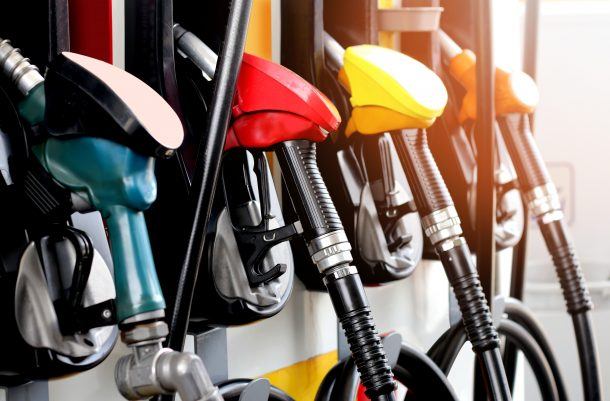














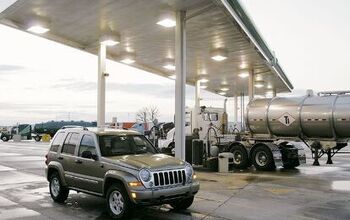

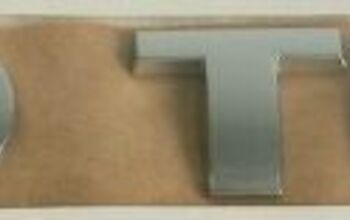
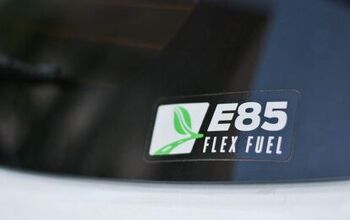
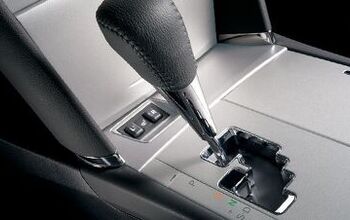










Comments
Join the conversation
Re: The KISS Principle, as well as the turbos not doing what they claim! Don't have time to read all the comments tonight, but I have yet another chance for me to beat the drum: I'd rather have a big N/A four-banger or a V6 in a regular sedan. Nice and smooth and all times, and you can grab it by the scruff of the neck and have FUN as well. (Yes, even an Accord Sport with the ** N/A ** K24 has enough squirt that a fair number I see are that trim, and the CVT is the most "regular"-feeling one extant, such that even the CR-V's unit is inferior. Honda has announced that low-end Accords will get the mouse wheels beginning in 2018. See below.) Not having to wait an instant for spool-up; no real-world mpg loss from having to cane the poor car to get it to move smartly more often than not, especially in slice-and-dice, cut-and-thrust traffic; no risk of expensive repair down the road thanks to lax maintenance, where a missed oil change won't coke..er..cook the turbo, a concern for Mr. & Mrs. Joe Average, who intend to purchase a Camry XLE (high-end -- V6s are going away altogether) or Accord LX (base models which currently have N/A K24s will get turbos of some sort) of either car's next-generation; you get my drift!
Actually, there are diesel-hybrid passenger vehicles... http://www.peugeot.co.uk/hybrid-cars-range/ Only in Europe.